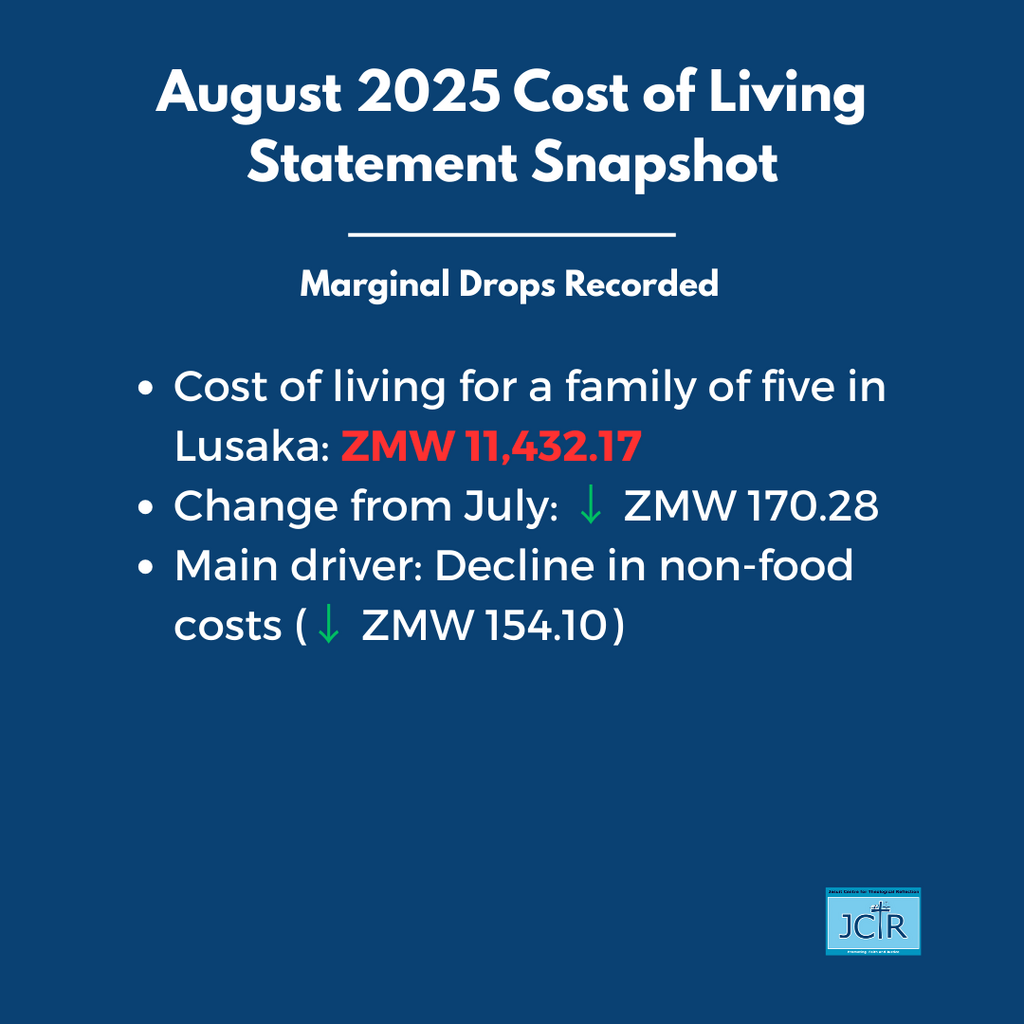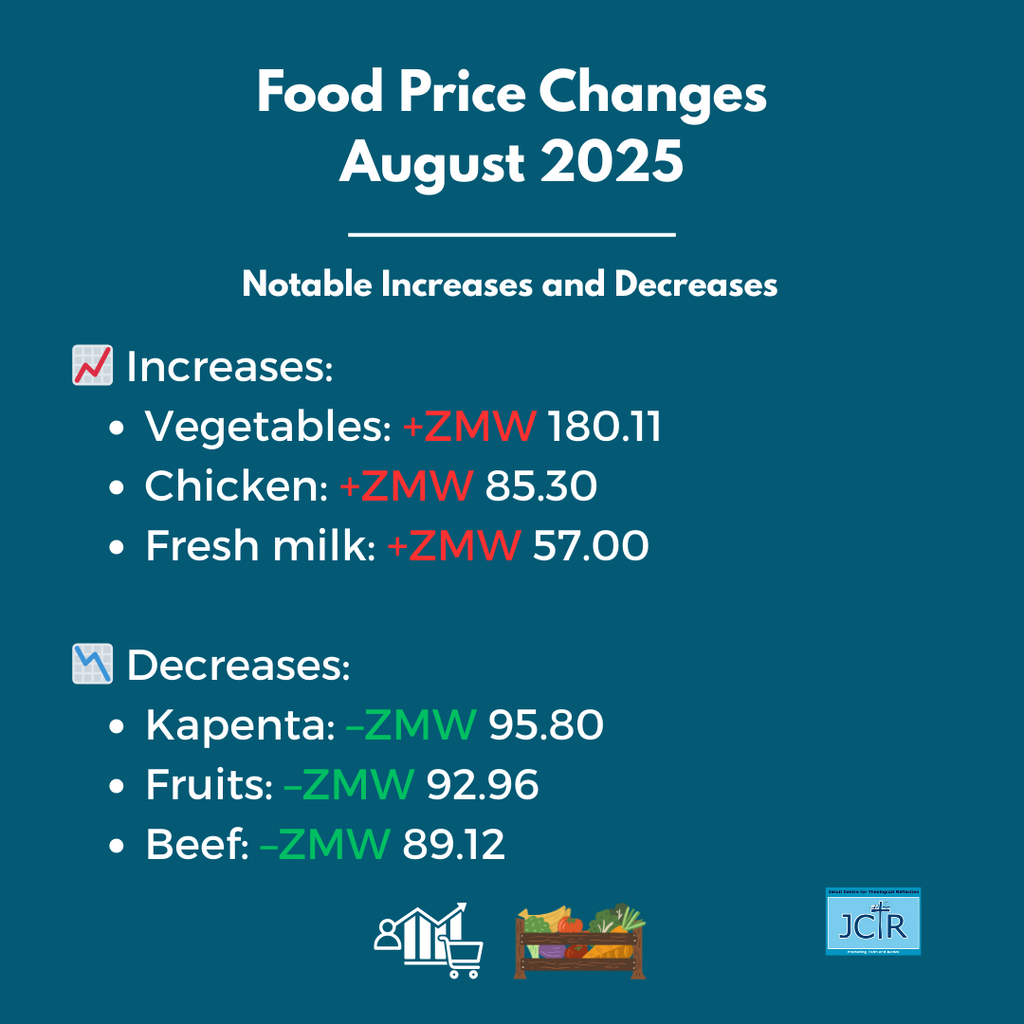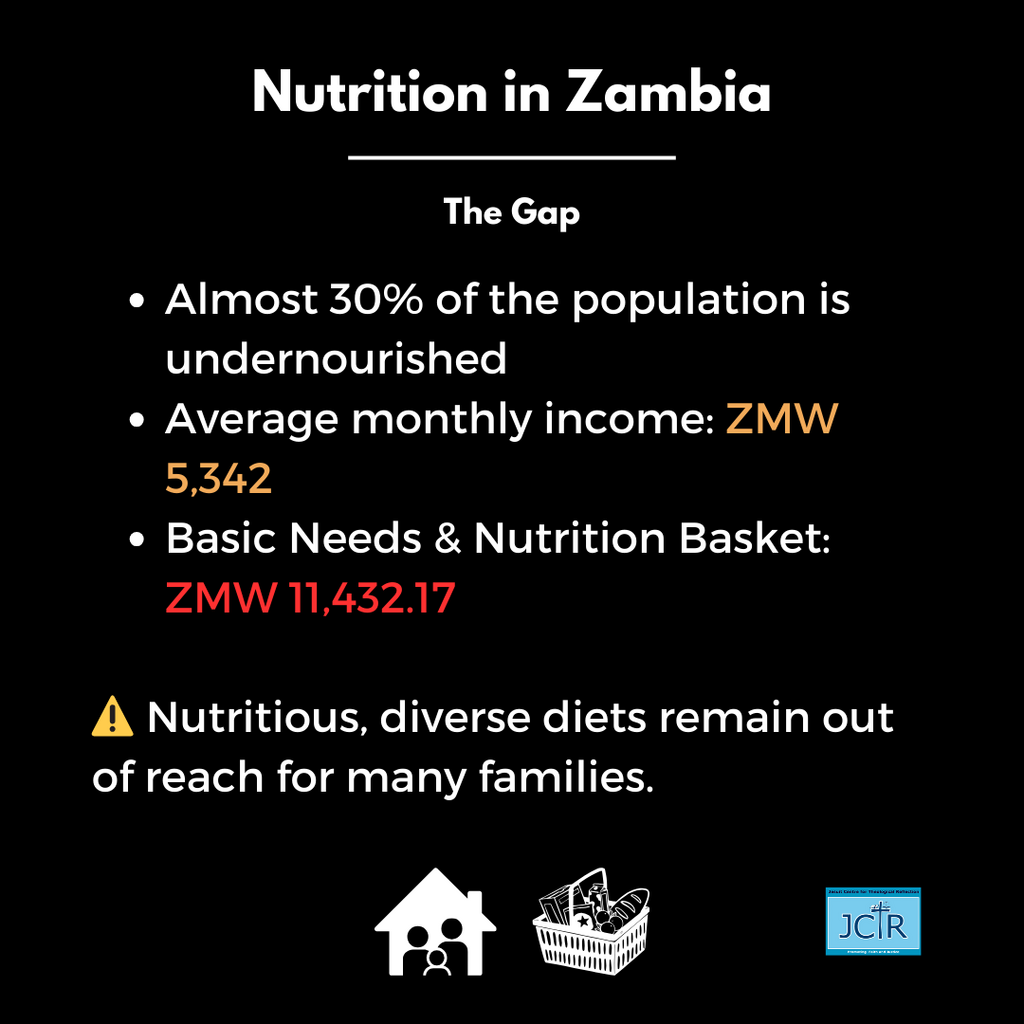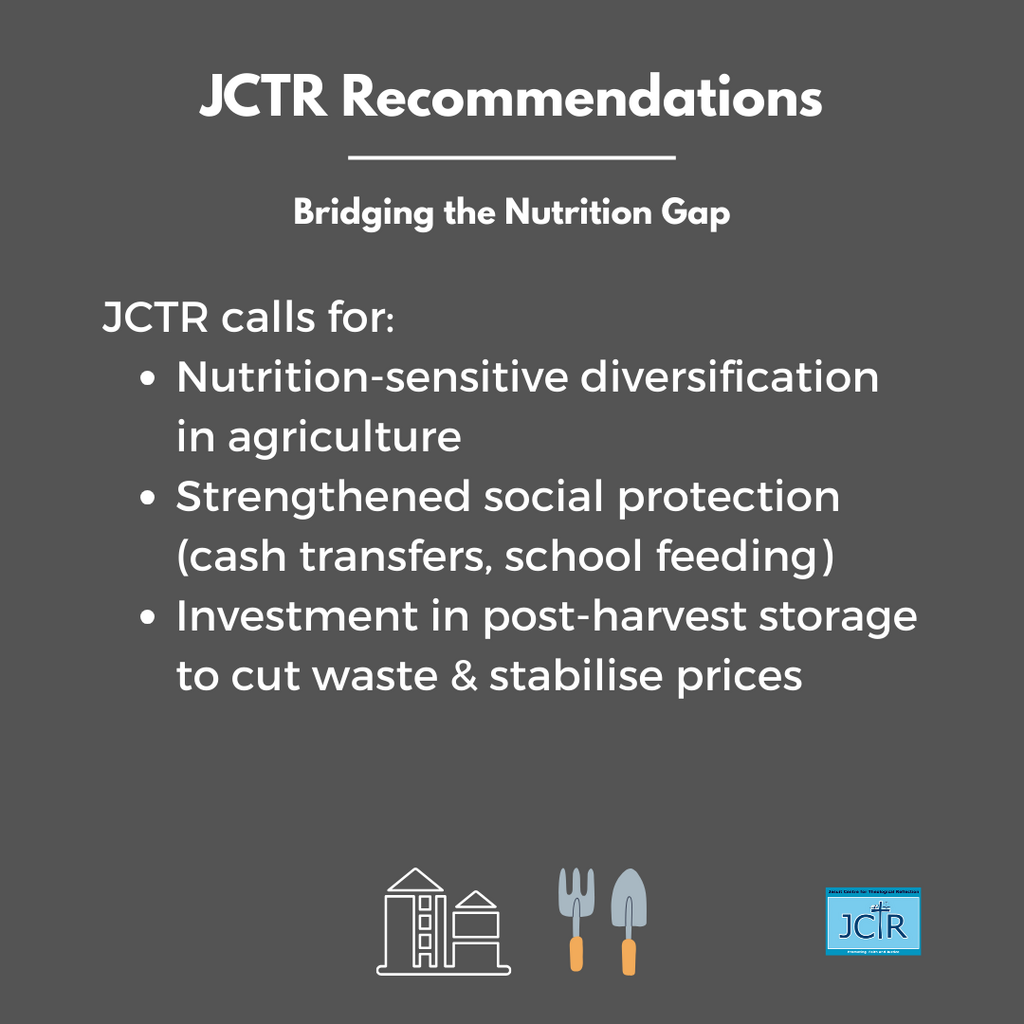
Lusaka, Zambia – The Jesuit Centre for Theological Reflection (JCTR) August 2025 Basic Needs and Nutrition Basket (BNNB) for Lusaka for a family of five stood at ZMW 11,432.17, dropping from ZMW 11,602.45 in July and representing a reduction of ZMW 170.28. This decline was driven primarily by a notable decrease in the cost of essential non-food items, which fell by ZMW 154.10, while the cost of basic essential food items saw a marginal reduction of ZMW 16.18. Among food commodities, there were some significant price increases in vegetables (increased by ZMW 180.11), chicken (increased by ZMW 85.30), and fresh milk (increased by ZMW 57.00). Conversely, the largest decreases were recorded in the prices of kapenta (down by ZMW 95.80), other fruits (down by ZMW 92.96), and beef (down by ZMW 89.12). Under the non-food items section, the price of a 90kg bag of charcoal decreased by ZMW 76.67. These shifts reflect ongoing volatility in both food and non-food commodities, underscoring the need for continued monitoring of household affordability, particularly in urban areas.
Despite some minor fluctuations, the overall price of the BNNB remains significantly above the average income level of ZMW 5,342 for most Zambian households. As a result, families are struggling to access a full range of food and non-food essentials necessary for a dignified standard of living. According to the Ministry of Agriculture's ‘Food Balance Sheet Report 2019-2023’ released last month, Zambia produces enough calories (2,340 kcal per person per day), primarily from staples like maize and cassava. The report depicts that as a country, we are self-sufficient in these crops, indicating progress in food availability. However, the report also highlights notable gaps in nutrition. For instance, the intake of proteins, calcium, vitamin A, zinc, and iron, particularly for women, falls below recommended levels. Animal products and oils, which are crucial for addressing these deficiencies, remain expensive and dependent on imports, making them inaccessible for many families. Consequently, nearly 30% of the population is still undernourished, even though the country appears to be food secure. Although food is available, it is not affordable for most households living below the average income level as the BNNB report shows. Essential foods for nutrition, such as rice, cassava meal, and tomatoes, are often subject to significant price fluctuations, making healthy diets difficult to maintain.
Additionally, high post-harvest losses in crops such as cassava, potatoes, and rice continue to fuel food waste and contribute to price instability. During the launch of the Lusaka City Council AfriFOODlink Desk on Friday, August 29, it was further highlighted that limited value addition and inadequate cold storage facilities are driving significant food wastage, with tomatoes alone experiencing losses of about 30%.
Recommendations:
While Zambia has made progress in producing sufficient food, this has not yet translated into nutrition security for its people. Families continue to eat to survive rather than to thrive amidst high malnutrition levels. Urgent action is needed to ensure that nutritious, diverse diets are both available and affordable, so that every Zambian household can live with dignity.
For further clarifications, contact the Social and Economic Development (SED) Programme at the Jesuit Centre for Theological Reflection (JCTR) on 0955290410, or email info@jctr.org.zm and admin@jctr.org.zm. Address: Martin Mwamba Road, Plot 3813, Olympia Park, Lusaka. Postal: P.O. Box 37774, Lusaka.



